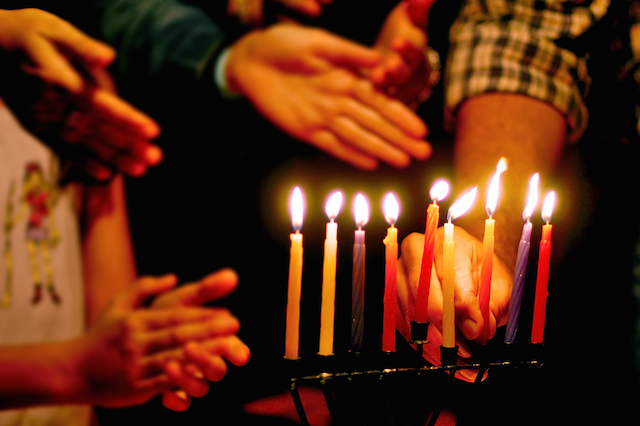
PHOTO: wishlearning.com
Hanukkah, or Chanukkah, the Jewish festival of re-dedication, sometimes known as the festival of lights, overlaps with Christmas this year, lasting eight days from the evening of December 24th to the evening of January 1st. Traditionally, Hanukkah is celebrated with the lighting of a special candelabra, called a Menorah, the recitation of special Hanukkah prayers, the exchanging of gifts, eating fried foods, and playing a gambling game called ‘Dreidel’.
What most people don’t know about Hanukkah is the history of how the holiday got started, and it’s a pretty fantastic story. Like most Jewish holidays, every traditional Hanukkah practice has a purpose and a meaning stemming from the history of Hanukkah. Here’s how it all began:
Alexander the Great’s Empire
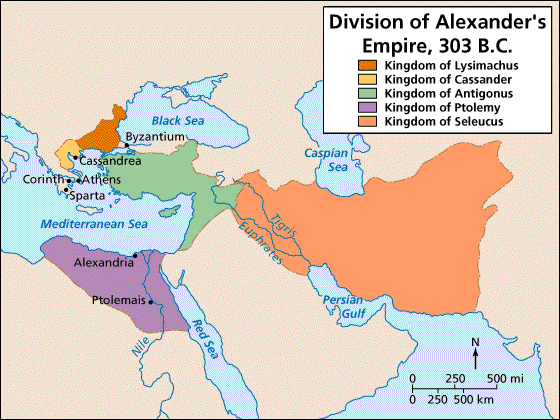
PHOTO: quora.net
In order to understand the historical context Hanukkah was created in, we have to take a step back for a moment. Alexander the Great, the Greek ruler and general, had gone around conquering the entire known world and had spread Hellenistic culture (Greek culture) to every part of it. Of course, that included the area where the ancient Israelites lived, the area that is now modern-day Israel. Alex the Great died before his heir was old enough to take the throne, and so his massive empire was divided between five generals: Lysimachus, Cassander, Ptolemy, Antigonus, and Seleucus.
Lysimachus took the area of what is now western Turkey, Cassander took Macedonia, Ptolemy took the Egyptian part of the Empire (which, at the time, included Israel), Antigonus took Asia Minor and northern Syria, and Seleucus took Mesopotamia, Anatolia, and parts of India.
Forty years of war ensued. Cassander executed Alexander’s wife and young son, and eventually Antigonus defeated Cassander and took over Macedonia. Eventually, after the wars were over, the Seleucids were the only dynasty left standing in the aftermath of Alexander’s empire.
Antiochus IV Was One Crazy Guy
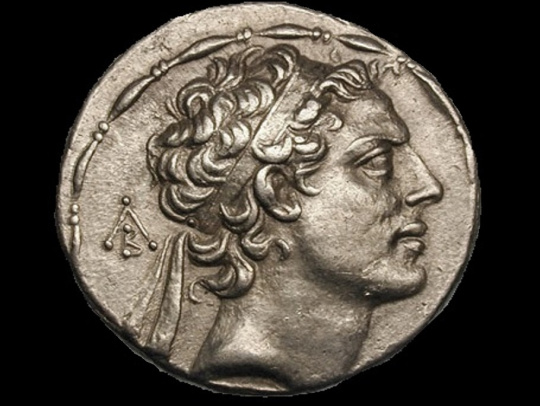
PHOTO: deadliestblogpage.com
This leads us to one crazy guy: Antiochus IV. Antiochus IV was the successor of Antiochus III, the emperor who defeated the Ptolemy Empire, taking over Egypt and Israel and bringing them under Seleucid rule. For a time, Antiochus III guaranteed the Jewish people right to “live according to their ancestral customs”, and gave them leave to continue practicing their own religion instead of adopting the Greek pantheon.
Well, his successor wasn’t quite so lenient.
Antiochus IV was a bit of a nutcase. He was immensely full of himself, so full of himself that he called himself “theos epiphanies”, or “manifest god”, and insisted that he be referred to as Antiochus Epiphanies throughout his empire. This behavior led some people to call him, instead, “Antiochus Epimanes”, a wordplay on his self-proclaimed deity that meant “The Mad One”.
The Maccabees and The Fight for the Temple
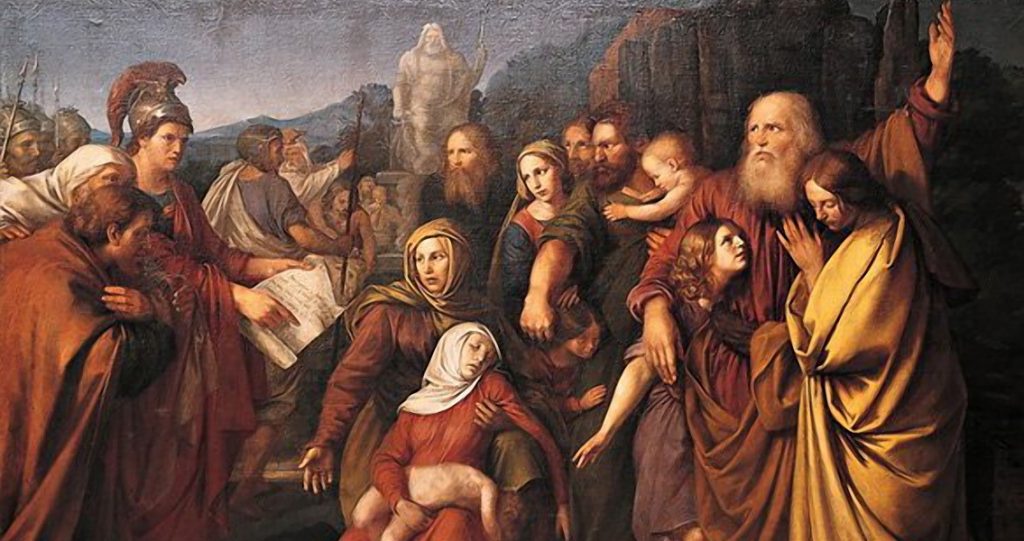
PHOTO: tvtropes.org
Now, Antiochus IV, no matter how off-the-wall he was, was leaving Judea (modern-day Israel) pretty well-enough alone until 175 BC, when a Jewish political faction called the Tobiads, who wanted Judea to become Greek, asked him to invade Jerusalem after they were thrown out of the country by the high-priest of the Jewish temple.
Well, Josephus tells us what happened next:
The king being thereto disposed beforehand, complied with them, and came upon the Jews with a great army, and took their city by force, and slew a great multitude of those that favored Ptolemy, and sent out his soldiers to plunder them without mercy. He also spoiled the temple, and put a stop to the constant practice of offering a daily sacrifice of expiation for three years and six months.
– Josephus, The Jewish War.
Judaism was outlawed, and Antiochus Epiphanies ordered an altar to Zeus to be constructed in the Temple. He banned circumcision, and important religious Jewish custom, and demanded that pigs (a non-kosher animal) be sacrificed at the altar in the Temple.
As you can imagine, this provoked a massive revolt. At the head of the revolt was a Jewish priest named Mattathias and his five sons, Jochanan, Simeon, Eleazar, Jonathan, and Judah.
According to the traditional Hanukkah story, the Maccabees, as they were called, fought their way through Seleucid forces in Jerusalem, retook the temple, killed the Jewish priest who was complying with Antiochus’ orders to sacrifice pigs, and began the long process of re-dedicating the Temple.
One of the most important symbols the Maccabees had to find and rededicate was the Temple’s Menorah. Traditionally, the Menorah was lit using oil, but all of the holy oil had been contaminated by the Greeks. According to legend, they found a single cruse of olive oil that was still clean – enough to last them only one day. They chose to light the Menorah anyway, and miraculously it burned for eight days, enough time for new oil to be prepared according to Jewish conditions of ritual purity.
Ever since, the holiday of Hanukkah, or the festival of lights or re-dedication, has been celebrated to commemorate the re-dedication of the Temple.
Behind the Hanukkah Traditions
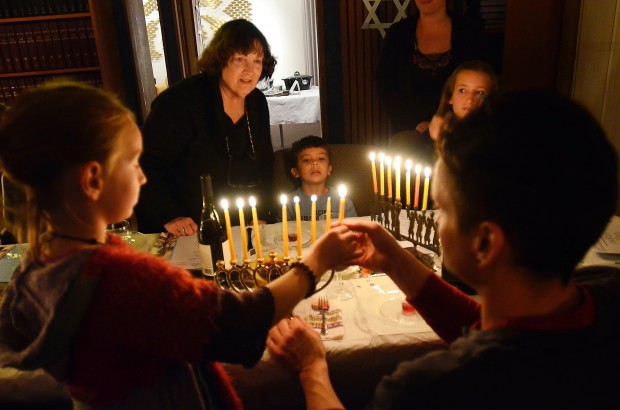
PHOTO: napavalleyregister.com
There are four main symbols in the traditional celebration of Hanukkah: the Menorah, gelt (gifts), dreidel (a game), and fried foods.
The Menorah is lit, of course, to commemorate the ritual re-dedication of the Temple. With the candle ceremony comes ritual prayers and thanksgiving. Gelt, or gifts, traditionally is not a very large part of Hannukah. Rather, gifts are mainly given to children to reward good behavior. Gifts began to be given since Hanukkah overlapped with Christmas, and Jewish children were often upset when their Christian friends got presents and they did not. Fried foods are eaten to commemorate the significance of oil to the holiday.
Dreidel is a gambling game that uses a top. It’s not a serious gambling game, and it’s most often played using M&Ms or pennies. It mainly symbolizes the time when Judaism and studying the Jewish scriptures were outlawed. Historically, when Jewish men would gather together to study the Jewish scriptures, they would also bring along a Greek gambling game that involved a top. Whenever an official or guard would walk by, they would quickly act as if they were gambling (a legal activity at the time!).
The Hebrew word, Hanukkah, means “dedication”, referring to the re dedication of the Temple.

